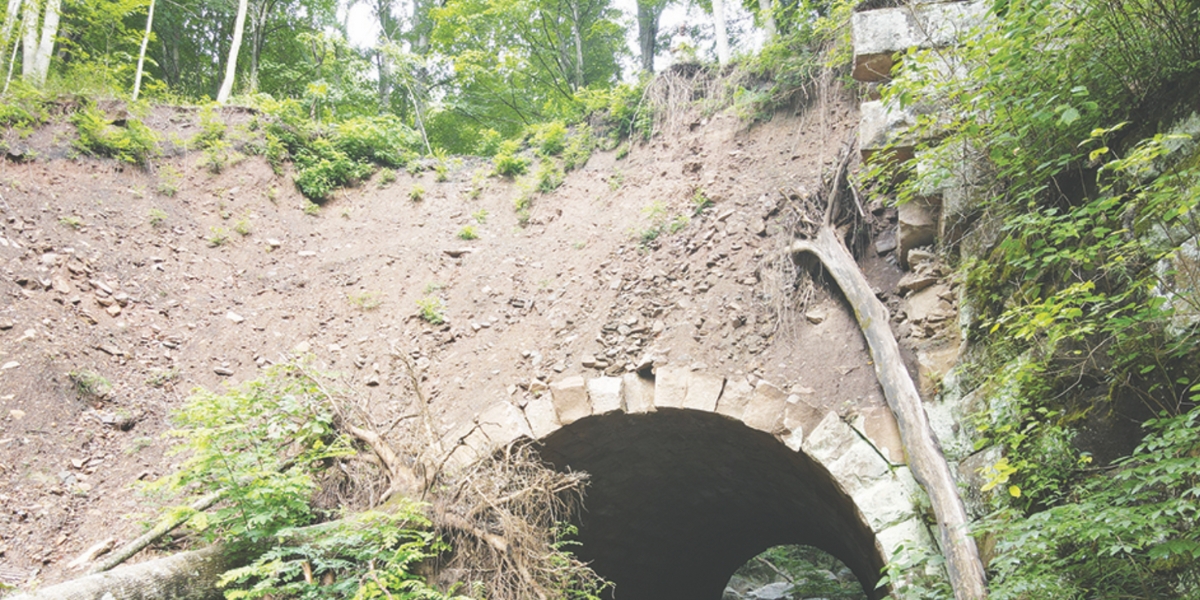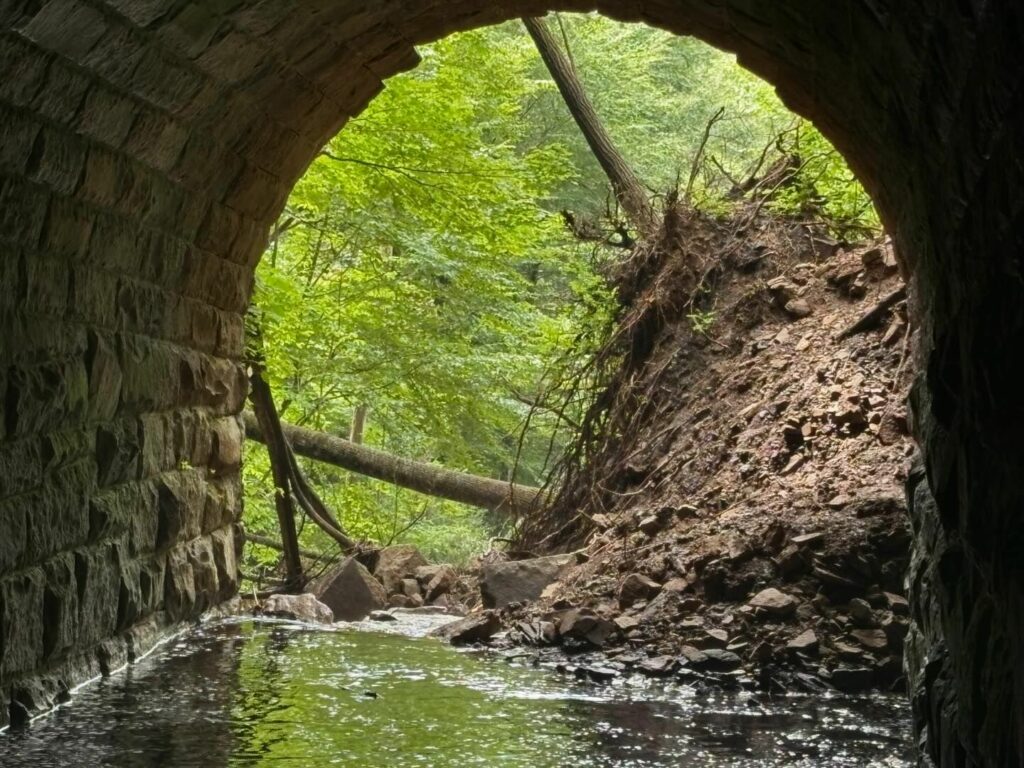By Betsy Jaeger Lawson, West Virginia Chapter of the Sierra Club
One of the most popular hiking, biking, and cross-country skiing trails in West Virginia needs our help! The Blackwater Canyon Trail in Tucker County is a ten-mile former railway that connects Hendricks, southeast of Parsons, to Thomas. It recently suffered a serious landslide that needs more repair than trail volunteers can provide.
Until 1888, the canyon was wild and covered with immense spruce and hardwood stands. Then coal and timber tycoon Henry Gassaway Davis laid tracks through the canyon. Along the then-West Virginia Central and Pittsburgh Railroad line, three impressive cut-stone culverts were constructed, built with stone quarried from the “road cuts” made during construction. Most of the canyon was eventually clearcut, and by 1910 fires swept over the wasteland. Flooding and soil erosion left the area uninhabitable.
The Monongahela National Forest was established in 1920, bringing anti-erosion and reforestation projects to the area. Slowly, the canyon began to recover, and trees returned. The railroad became inactive in 1983 and was designated a hiking trail in 1989. The Blackwater River was recommended for “Wild and Scenic River” status in 1995. But then-owner Allegheny Power Systems refused to sell adjacent land to the Conservation Fund. Eventually, Allegheny Wood Products (AWP) became the owner of 3,000 acres of the canyon.
Today the trail is the property boundary between Monongahela National Forest on the uphill side and land owned by Scenic Vistas, LLC on the downhill side. The landslide is at the stone culvert at Big Run Tributary, at Mile 4 on the downhill side. While Scenic Vistas, created by AWP, is the landowner, they are not obligated to maintain the trail. The historic and protected Blackwater Industrial Complex area, including the trail, is the responsibility of Monongahela National Forest. Unfortunately, they have failed to maintain it, leading to significant erosion from severe weather.
Coal and timber removal destroyed the canyon once. Now a highway, Corridor H, will intrude itself on the quiet and natural beauty of the canyon. The trail is essential to the local economy today, providing recreational opportunities for thousands of people each year. It is up to the Forest Service to repair this landslide and maintain the trail for the many people who use it.
Take action to protect the Blackwater Canyon Rail Trail by sending a letter to the Forest Service today: https://bit.ly/SaveBlackwaterCanyonTrail
Editor’s note: This article originally appeared in Mountain State Sierran Fall 2024 issue, the publication of the West Virginia Sierra Club Chapter.
Cover photo: Severe damage caused by the Big Run Culvert along the Blackwater Canyon Trail. (Photo courtesy Stephen Strother.)


